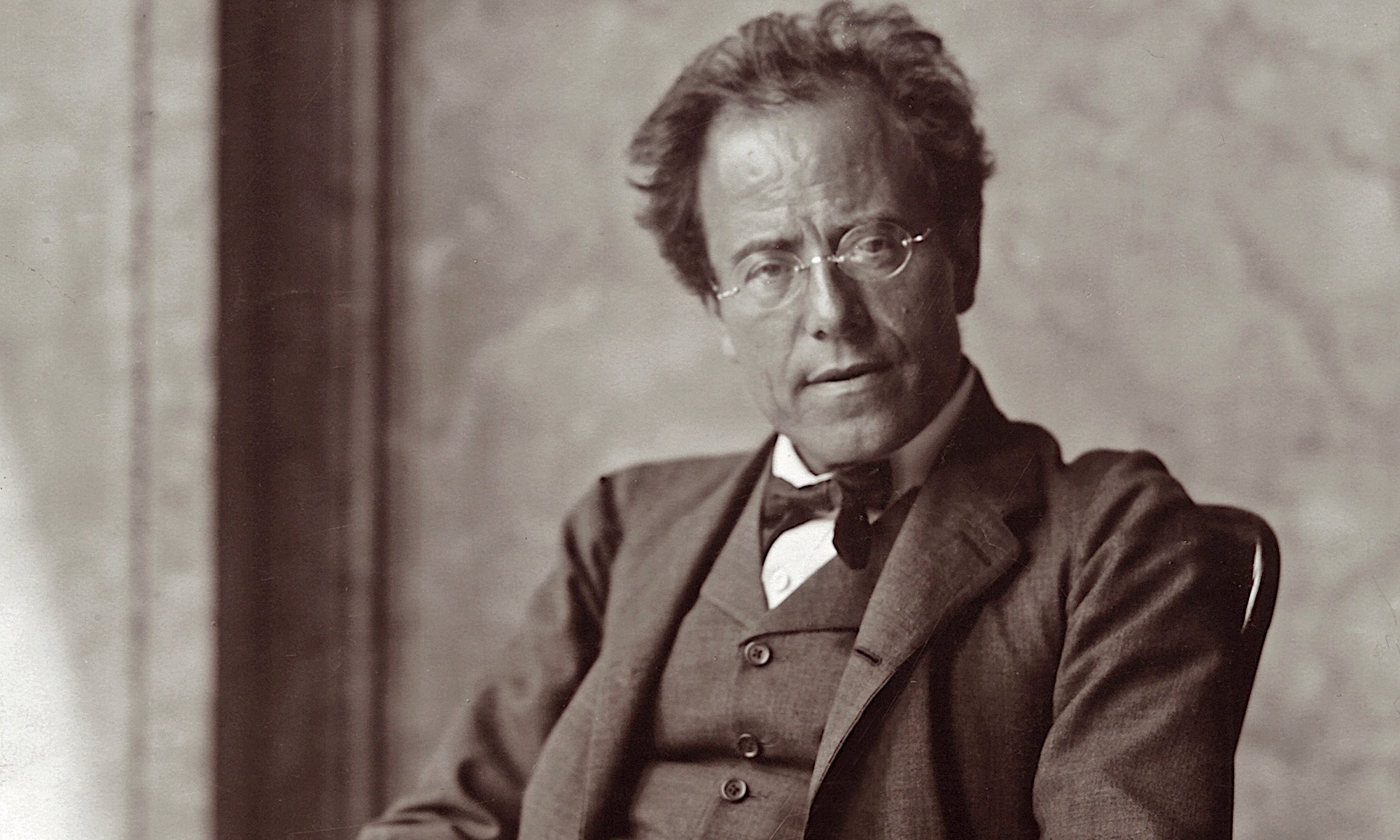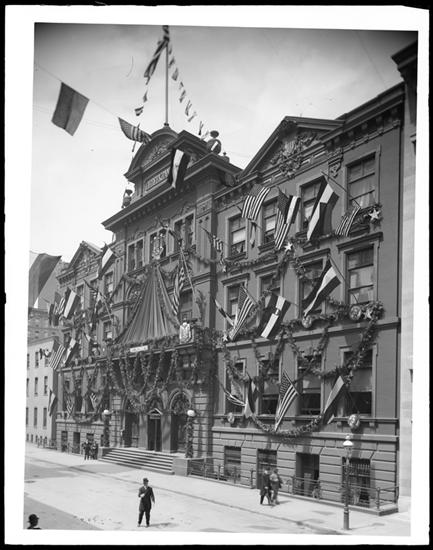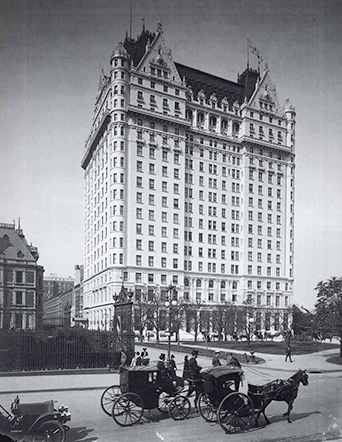- Chronology: Year 1908
- Location: New York Metropolitan Opera (MET)
- Program: Die Walkure
- Conductor: Gustav Mahler (1860-1911)
- Orchestra: New York Metropolitan Opera (MET) Orchestra
- Singers: Johanna Gadski (1872-1932), Alois Burgstaller (1871-1945), Olive Fremstad (1871-1951), Anton van Rooy (1870-1932), Louise Kirkby-Lunn (1873-1930), Robert Blass (1867-1930), Bella Alten (1877-1962), Frieda Langendorff (1868-1947), Rita Fornia (1878-1922), Marion Weed (1870-1947), Josephine Jacoby (1875-1948), Paula Wohning, Marie Mattfeld
- Stage design: Max Bruckner, Obronsky, Impekoven & Co.
- Notes: New York Metropolitan Opera (MET) repertoire Gustav Mahler, met118
Review of W. J. Henderson in the Evening Sun
Metropolitan Opera was itself again, an art in tune with the infinite needs of a world metropolis, when Gustav Mahler performed his third feat of leadership since Seidl’s day and played “Die Walküre” to a finish fully three-quarters of an hour before midnight last evening. The Germans know that art is long. They demand a good chair, hence there were no standees, who as usual frequented the rival house for Italian “Traviata” and Tetrazzini.
The full view of the stage is a Wagnerian sine qua non, wherefore also the blind side-galleries did not sell. But the most splendid audience since Hertz’s first “Meistersinger” and Mahler’s first “Tristan” enjoyed this “Valkyre” to the full. Gorgeously cloaked box holders came late, even two hours late, but it was an unusual compliment when half of them stayed to the close and cast down their violets upon Gadski in Brünnhilde’s slumbering fire music. There was here no roar of hissing steam, only the pianissimo pyrotechnics of actual smoke that has lost half its terrors to an age of automobiles.
Mahler had begun, oh! so softly, at 7:45 to prepare his far-off climax. Burgstaller on his first appearance, still hopelessly hoarse, had an American beauty bouquet after the “Spring Song.” And while Fremstad’s Sieglinde must be set down as the one perfect work of song and semblance, there was no need of official apology for the organ voice of Kirky-Lunn, either as Goddess Queen or Sister Walkyr.
Van Rooy, too, has no need to overdraw the vocal reserves of a mighty Wotan. Blass as Hunding showed more moderation. And barring one saw-toothed soprano that one failed to identify among the eight voices, there has rarely been a more truly “all star” octet than Alten, Weed, Wochning, Fornia, Mattfeld, Langendorff, Jacoby and, again, Kirky-Lunn
Unsigned review in The Globe
“DIE WALKÜRE”
The wonderful achievement of Mr. Mahler with Wagner’s “Tristan und Isolde” at the Metropolitan Opera House excited hopes for the production there of ‘Die Walküre” under the same conductor that were not altogether realized last night. The fault probably lay very little with Mr. Mahler. If the orchestral accompaniment of the first act seemed subdued to the point of tameness, the shortening was due, no doubt, to consideration on the part of the conductor for the vocal condition of Mr. Burgstaller, who was so hoarse that he could hardly sing at all, for in the later acts the accompaniment never lacked life, and even in the first act, the orchestral explosion when Siegmund drew the sword from the tree was of thrilling power.
The orchestral performance, indeed, was the most notable feature of the production. It lacked somewhat the security and finish that characterized the accompaniment to “Tristan und Isolde,” but it was often beautiful and always interesting. Seldom, for example, can the prelude to the second act have been played with such superb effect. Further performances of the work under the masterly lead of Mr. Mahler will undoubtedly gain in eloquence and perfection of detail.
Of the singing actors Mme. Fremstad and Mme. Kirkby-Lunn carried off the honors. The pathos and the passion of Mme. Fremstad’s Sieglinde are well known here. There was much that was admirable in her singing, though her voice did show signs of the strain to which it has been subjected. Mme. Kirkby-Lunn was said to be suffering from a cold, but no one would have suspected such a difficulty from her rich and expressive singing of the music allotted to Fricka. Mr. Burgstaller, who was making his first appearance of the season, struggled bravely with a vocal condition that seemed momentarily to threaten his immediate retirement from the cast. Perhaps, because of this shortcoming his acting was more than usually sentimental. Nor was he fortunate in presence. Siegmund had a very weary march through the forest, and Mr. Burgstaller made him up to look like a tramp. Mme. Gadski was a sincere, painstaking, unheroic Brünnhilde. The Wotan of Mr. Van Rooy and the Hunding of Mr. Blass are familiar here from frequent repetition. Mr. Van Rooy had not his old-time charm of voice. Scenery and stage management left much to be desired.
Review of Krehbiel in the Tribune
WAGNER’S ‘DIE WALKÜURE”
GUSTAV MAHLER FINDS HIMSELF FAR FROM VIENNA
Some Specimens of Intelligent Stage Management in the Presentation – Burgstaller sings ‘Siegmund’ under Difficulties – Orchestra Does its Duty Quite Well.
Gustav Mahler conducted a performance of “Die Walküure” at the Metropolitan Opera House last night and doubtless learned some of the reasons why his journey to New York was likely to result in disappointment to himself and wonder to many operagoers. In the Imperial Opera of Vienna Mr. Mahler was in a position to dictate. He was the intendant and his word was law. At the Metropolitan Opera House he is the principal conductor of German operas and has only the prerogatives of the conductor. And he cannot always exercise those to his own satisfaction.
Otherwise matters would certainly not have gone as they did last night. The stage management is usually incompetent, and in the German works, in which it is so vitally significant, it is nearly always so. At the Vienna opera the manner in which the unison of the rising and falling of the fire on Hunding’s hearth, with the illumination of the sword hilt in the tree and the nuancing in the orchestra, is so perfectly done that the effect aimed at by Wagner is realized.
At the Metropolitan last night the whole thing was bungled, and half the time there was no fire at all. There were other places in which some intelligent comprehension of the relation between the music and the picture might have been shown to advantage of the performance, but it is as unnecessary as it is useless to go into details in regard to these matters.
It must be added that some of those who appeared as principals in the performance were not at their best. Mr. Burgstaller was the Siegmund and he was suffering from such hoarseness as to raise doubts in the first act of his ability to go through with his part. Furthermore there were times when Mr. Burgstaller and Mr. Mahler seemed to be not quite at one in regard to the music. The conductor, however, had the advantage of having the score before him.
Mme. Kirkby-Lunn, who sang Fricka was reported to be indisposed, but except for some diminution from the customary volume of the voice the indisposition was not noticeable. She sang the part intelligently and with good declamatory effect. Mr. Blass was the Hunding and Mr. Van Rooy the Wotan, and these two repeated impersonations quite familiar to this public.
Mme. Fremstad gave great delight to all lovers of Wagner’s music drama by her embodiment of Sieglinde. It was a beautiful piece of singing and acting, full of passion, tenderness and pathos. Mme. Gadski’s Brünnhilde is not new to this stage. It seemed last night to lack some of its habitual spontaneity of manner and freedom of vocal style. The choir of Valkyrs in the last act included Miss Alten, Miss Weed, Miss Fornia and Mme. Langendorff.
The orchestral part of the drama was given in a manner deserving of great praise. In the first act it seemed as if Mr. Mahler might be inclined to subdue matters a little too much, but it became evident in the course of the representation that he had in mind the fitting of the tonal body to the repressed emotion of the scene, for in the second act, in the blaze of sunlight and with a dialogue of open communications, (with no Hunding to be awakened by loud talk), he let loose a torrent of glorious, vivifying tone.
His conducting was therefore firmly planned and finally carried out. The orchestra nearly always played with solid tone and with precision. If everything else in the performance had been as good as the orchestral part the sum of results would have been more to the fame of Wagner and peace of Mr. Mahler’s mind.




